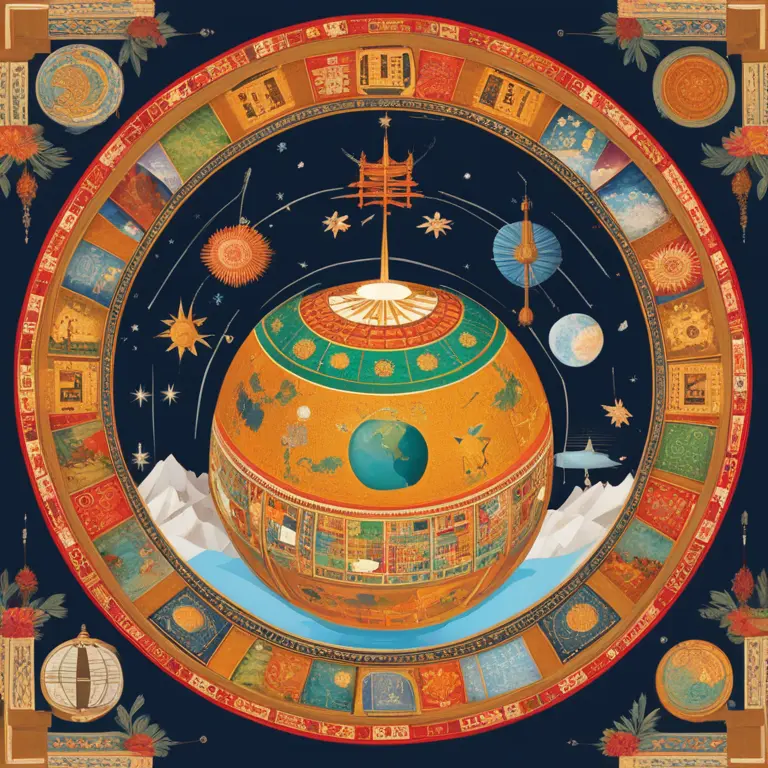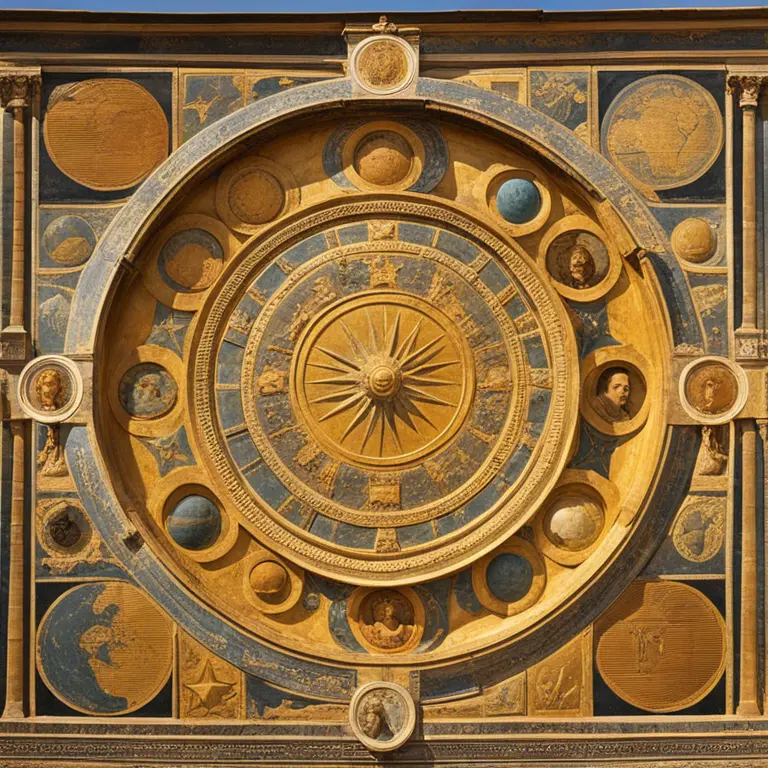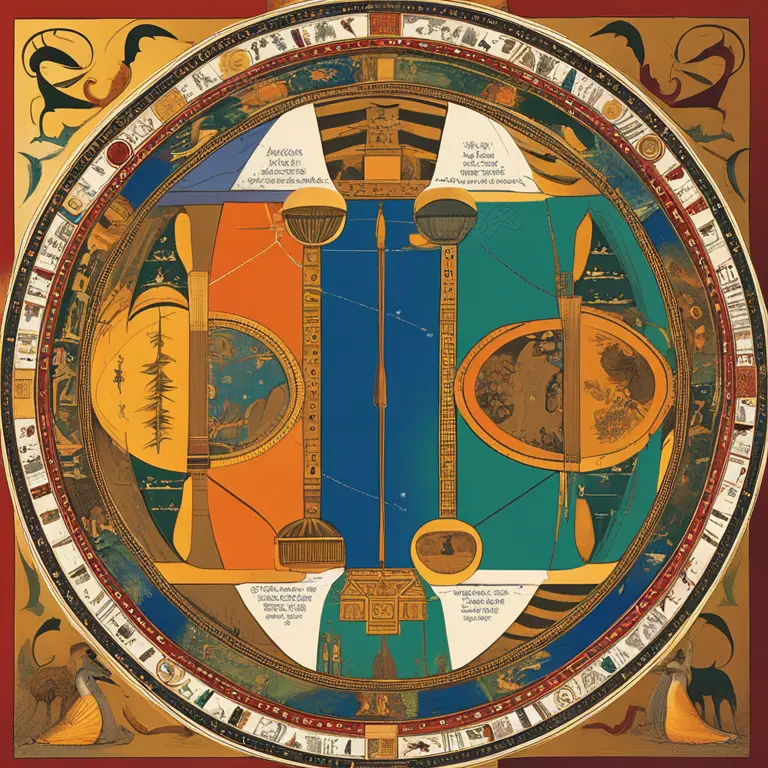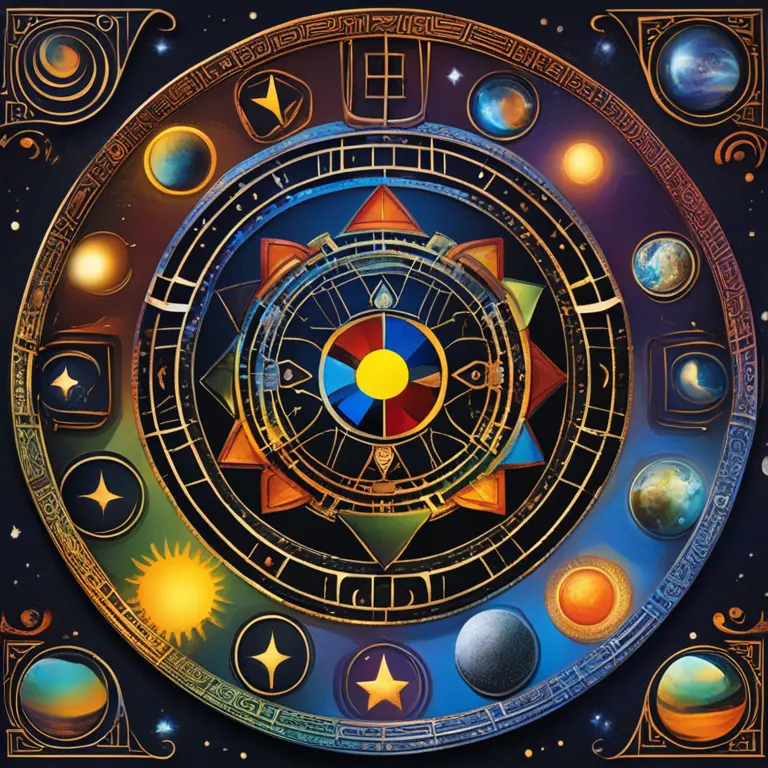
The Origins of Astrology: A Historical Synopsis
The history of astrology dates back thousands of years, weaving a rich tapestry through various cultures. This article delves into the roots of astrological practices that have impacted human belief systems worldwide.
article by Priya Deshmukh
Ancient Beginnings
The celestial dance of the stars and planets has intrigued humanity since prehistoric times. Astrology, the study of the movements and relative positions of celestial bodies interpreted as having an influence on human affairs and the natural world, has its roots deeply embedded in ancient civilizations. Predominant among the contributors to early astrological knowledge were the Babylonians, who, by the 2nd millennium BCE, had developed a rudimentary system of astrology that would eventually influence other cultures.

Evolution in the Hellenistic World
As civilizations interacted through conquests and trade, astrological practices spread and evolved. The Hellenistic period, particularly in Alexandria, became a melting pot where Babylonian astrology merged with the Egyptian tradition of Decanic astrology. This fusion, evolving from the 4th to the 1st century BCE, was a critical turning point, producing a horoscopic astrology—a system that utilizes a horoscope, or a map of the sky, to predict aspects of an individual's life based on the positions of the stars at their birth.

The Greco-Roman Influence
The influence of Greco-Roman culture propagated astrological practices across the Mediterranean and Europe, further integrating astrology into daily life and governance. Great thinkers like Ptolemy emerged during this epoch, around the 2nd century CE, producing works such as the 'Tetrabiblos' which rationalized the physical and mathematical aspects of astrology and fortified its respectability among the educated classes. His contributions have had a long-standing impact on how astrology is practiced even past the threshold of modern history.

Astrology Travels East and West
The expansive reach of astrology continued to cross borders and was notably present in the Islamic Golden Age. Islamic scholars translated Greek astrological texts into Arabic, enriching the knowledge with their observations and insights. This amalgamated wisdom traveled to Europe during the Renaissance, reenergizing Western astrological studies. Meanwhile, in the East, Vedic or Indian astrology, known as Jyotisha, developed independently, with its references in ancient texts like the Vedas, echoing the deep-seated interest in celestial observation across different cultures.

Astrology in Modern Times
Despite the rise of science relegating astrology to the fringes, the 20th and 21st centuries have witnessed a resurgence of interest in astrological practices. This revival, facilitated by the accessibility of astrological information through books and the internet, has led to a renewed embrace of horoscopes and astrological readings in popular culture. Astrology apps and online services have become especially prevalent, reflecting society's undying fascination with this ancient interpretive art as it intertwines with modern technology.
Contemporary Astrology
In the year 2024 and beyond, astrology continues to adapt and thrive within the digital age. While skeptics remain, the pursuit of self-understanding through the stars has captivated a new generation searching for meaning. Astrology’s intertwining with psychological concepts and the prevalence of social media influencers specializing in astrological content has further popularized and democratized this ancient practice, ensuring its pertinence and legacy in an ever-evolving world.
Published: 2/5/2024
Modified: 2/5/2024
More predictions
Come back here soon to learn more about yourself and your future


Calculate Your Sun, Moon, Rising Sign Chart
Discover the insights of your birth chart: learn about your sun, moon, and rising signs to illuminate your astrological makeup.


Leo Zodiac Sign Insights: Traits, Love, and Destiny
Delve into the spirited world of Leo: learn about their bold traits, love compatibility, and 2024 forecast in this comprehensive guide.


From Zodiac Signs to Tarot Cards: A Celestial Guide
Connect the cosmic dots between your zodiac sign and the tarot with this insightful guide into the esoteric relationship of astrology and tarot card readings.